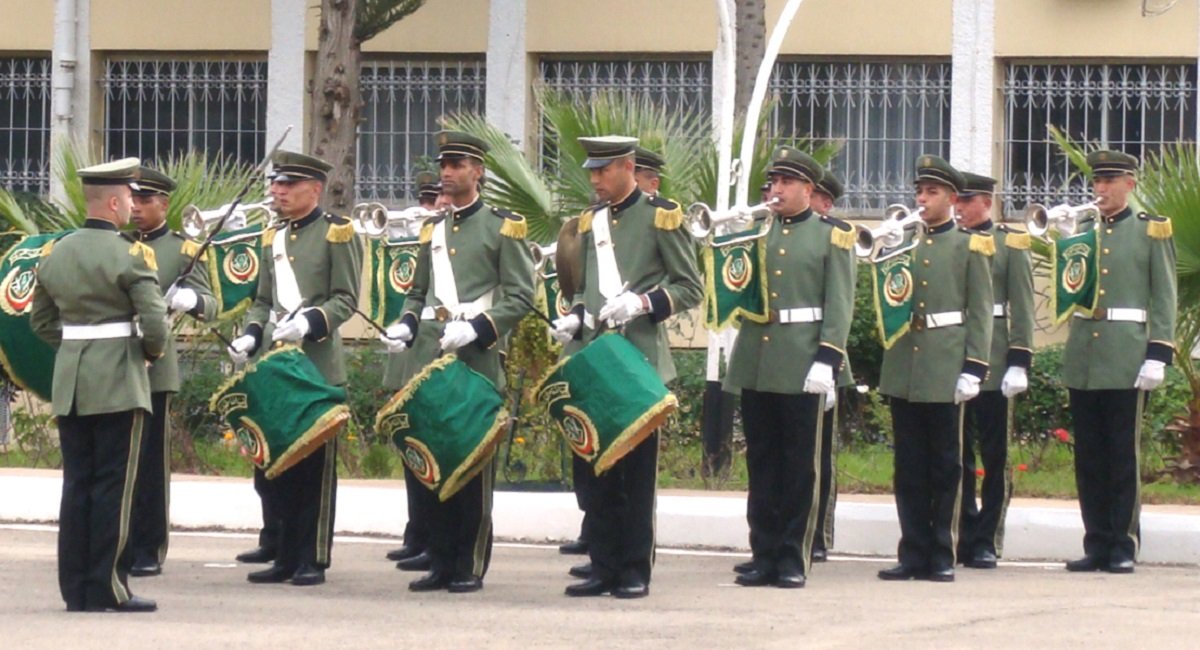

After the approval of constitutional amendments, the nature of control of the armed forces has become an important question for Algeria's transition to democracy.
The Algerian military has sought to avoid a radical change in the conditions that it inherited from the regime of former president Abdelaziz Bouteflika. It has used the constitution to exercise authoritarian control by strengthening presidential power and restructuring the external role of the armed forces. The constitutional amendments put to a referendum in November 2020 included the possibility of deploying Algerian forces outside national territory in international peace-keeping missions, albeit with constitutional limits. This runs against Algeria’s historically noninterventionist military doctrine and will likely distract from military reforms at the heart of the democratic transition.
Authoritarian or Civilian Control?
The political transition in Algeria is stalled. Arguing that the constitutional amendments and the shift in military doctrine indicate the beginning of civilian control over the armed forces is largely inaccurate. Algeria has not seen the procedures and arrangements for democratic transition that have taken place in southern Europe and Latin America, for example. The constitutional amendments reflect political and security concerns related to a complicated internal political situation and external concerns brought on by regional and international developments, including security threats in the Sahel region, the Libyan civil war, and the Western Sahara crisis, in which Algeria defends the right to self-determination.
In light of the domination of executive authority over the legislature, the shift in military doctrine does not reflect civilian control. The constitution does require a two-thirds majority in both chambers of parliament to authorize military deployments abroad, but these constitutional amendments reflect authoritarian control. Genuine civilian control would have required a discussion of these important changes by the parliament, but parliament appears to be a marginal institution in Algerian politics. Parliamentary involvement is required here because the shift in the military doctrine will inevitably result in an increase in the defense budget.
Difficulty in Establishing Civil Control
Accordingly, this shift in military doctrine has a purely political purpose: to spare the executive authority the external pressure of deploying forces to peacekeeping missions and allowing it to deal with a turbulent geographical neighborhood. These reforms lift the restrictions on military options and create tools for protecting Algeria’s national security, but they do not suggest military reform or a rebalancing of civil-military relations. This would be a long and complex process requiring the ruling elite to be convinced of the necessity of a democratic transition, as in the cases of southern Europe and Latin America.
Due to the Algerian military’s legacy, its balancing role in internal politics, and its close relationship with society, it is difficult to achieve military reform and democratic civilian control in a short period of time. Any ruling political elite in Algeria must maintain the armed forces’ budgets, its constitutional privileges, and its institutional organization in any desired democratic transition. In Turkey, for example, military reform took nearly half a century (from the first military coup in 1960 until constitutional reforms in 2010). In return, military elites must also see a gradual submission to civilian control as necessary, based on reconciliation and balance.
In order to have an effective interaction with the military, civilian forces need broad support, cohesion, and legitimacy to challenge the regime's ability to govern. They also need to present themselves as a reasonable and reliable alternative, since political forces and institutions do not enjoy societal trust like the military. They must adopt an approach of reconciliation and dialogue among themselves and with the military, to neutralize the political issues controlled by the armed forces. In contrast to democratic transitions in southern European and Latin America, in which popular revolutions were directed against military rule, Algeria’s Hirak movement has reinforced the close relationship between the protesters and the armed forces, represented by the slogan “khawa khawa,” meaning that the military and the people are brothers.
As a result of the military’s historic role in the popular Hirak movement, it is not possible to remove all of the military’s political and economic privileges at once, or even over one generation of leadership. Strategic planning and patience could lead to an optimal situation for civil-military relations through gradual reform. There is also an urgent need to share responsibility between the armed forces, political elites, and civil society organizations. There should also be a commitment to the rules and prerogatives that fall within the specialized scope of work of each of these three sets of actors.
Arbi Boumediene is a professor of political science in the Faculty of Law and Political Sciences at Hassiba Benbouali University of Chlef, Algeria.



